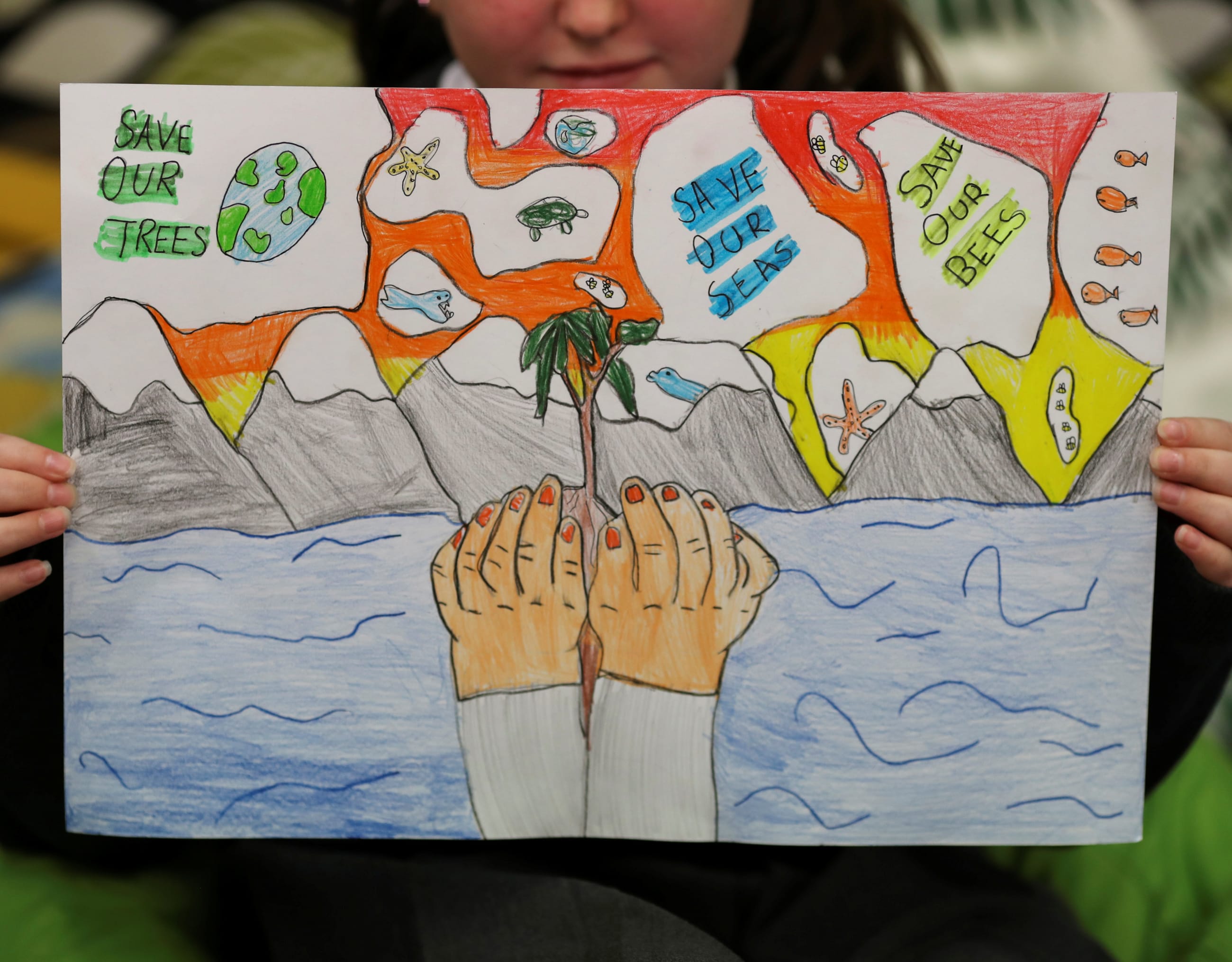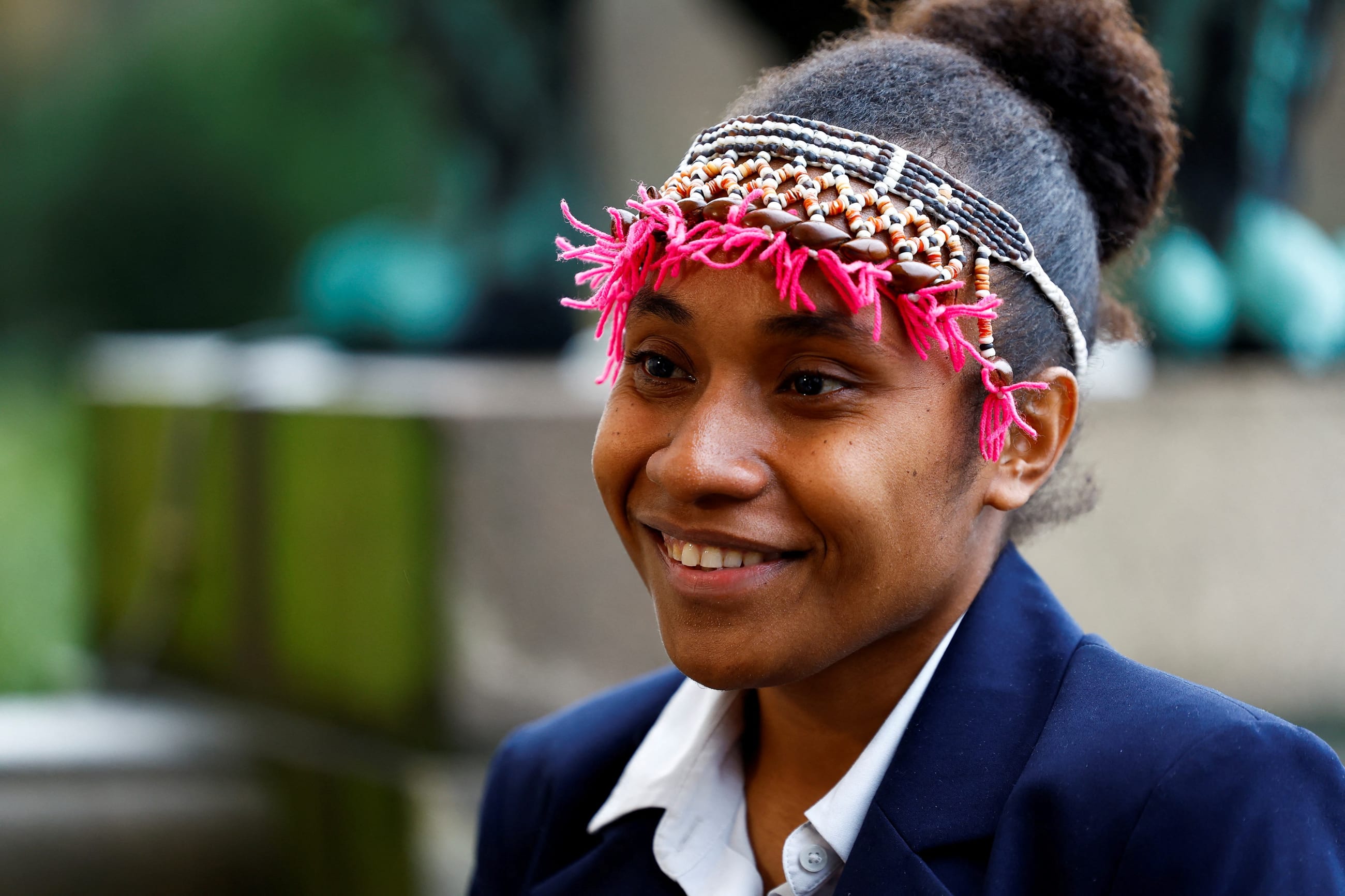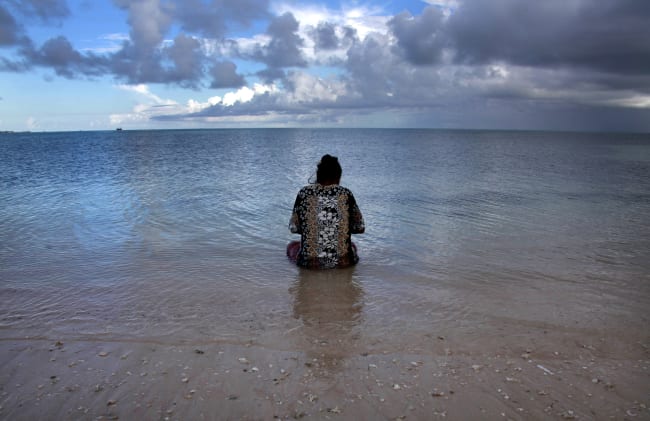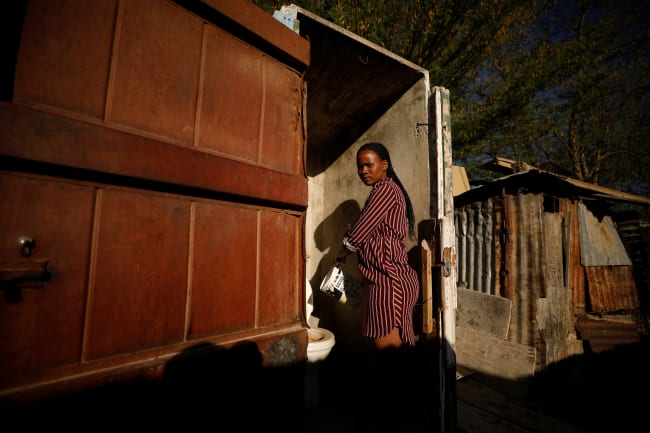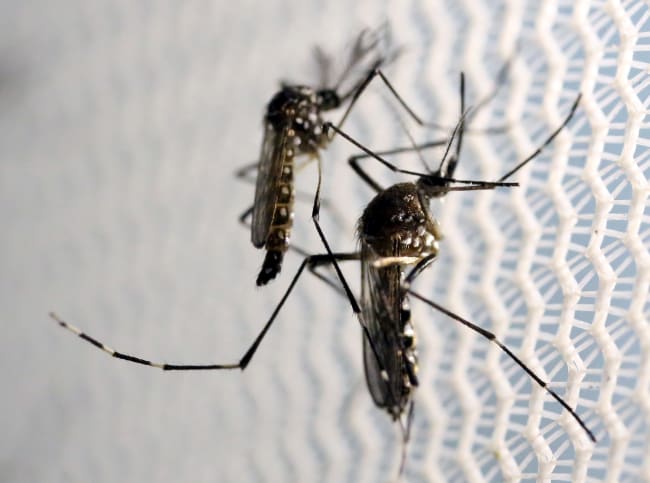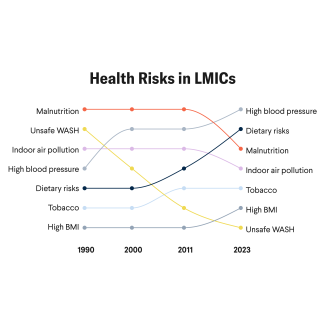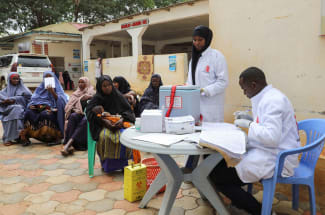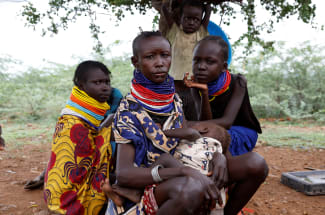The world's highest court has issued a sweeping judgment on climate change that has far-reaching consequences for public health.
On July 23, the International Court of Justice (ICJ) issued an advisory opinion on countries' obligations to address climate change under international law. In their ruling from The Hague, Netherlands, the 15 justices ruled unanimously that nations can be held accountable [PDF] for their climate-harming practices even if they have not signed onto the Paris Agreement.
Driven by advocates from island states, the ICJ climate judgment will likely change the landscape of global health and climate politics for decades to come. The ruling enshrines the right to a healthy environment and empowers underrepresented groups—such as youth, low-income communities, and communities displaced by extreme weather disasters—to seek reparations for climate harms from polluting countries and companies. Putting the ruling into practice will require linking law, science, and public health to develop a coordinated climate and health agenda for meaningful policy change.
Importantly, the ICJ clarified that the duty to prevent harm to people and the environment applies to all countries, regardless of their membership in the Paris Agreement or other climate treaties. In other words, the wider body human rights laws obliges countries to take climate action, and leaving the Paris Agreement does not offer countries a get-out-of-jail-free card.
Demonstrating the Power of Island States
The case behind the ruling originated in March 2019, when a group of law students attending the University of the South Pacific launched a campaign to lobby the Pacific Islands Forum to take stronger climate action.
Two years later, the government of Vanuatu took up their petition and led efforts to seek the ICJ's advisory opinion. The initiative built a coalition of like-minded vulnerable countries, soon receiving support from the 18 members of the Pacific Island Forum. Following years of diplomatic engagement, a 2023 resolution [PDF] was unanimously adopted at the UN General Assembly, formally requesting an advisory opinion from the ICJ.
The ICJ ruling provides young people with another tool to secure their rights and a liveable planet for future generations
July's ruling is a reminder that Pacific climate diplomacy has been a driving force in UN climate negotiations for the past 30 years. Pacific voices also spearheaded the inclusion of the 1.5°C (2.7°F) temperature limit in the Paris Agreement, helped drive an international fund for responding to loss and damage from climate change, and requested another advisory opinion that in 2024 obligated states to protect the marine environment.
Buoyed by this legal victory, the Pacific's diplomatic experience will likely be on full display at the thirty-first Conference of the Parties (COP31) UN climate conference in 2026, which is poised to be held in the Pacific region.
Promoting the Right to a Clean, Healthy, and Sustainable Environment
The ICJ ruling links climate action to the protection and promotion of human rights, including the human right to a clean, healthy, and sustainable environment. This right was formally recognized at the United Nations as recently as 2022, and more than 150 countries now have national and binding legal obligations to respect, protect, and fulfil the right to a healthy environment.
The constitutional right to a healthy environment has featured prominently in recent court cases, such as one brought forward by a group of senior women who sued the Swiss government over what they allege are inadequate policies to address climate harms, including extreme heat. Deliberation over the scope of this right in national courts, especially over the last decade, has helped set precedent for new climate cases that are more health focused.
Regional courts have also backed the strong link between human rights and climate action. The Inter-American Court of Human Rights concluded recently [PDF] that the American Convention on Human Rights "requires governments to prevent and remedy climate-related harms, protect vulnerable groups and future generations."
At the global level, the Paris Agreement [PDF] is underpinned by the right to health. The right to a clean and healthy environment was embedded in the 2023 Global Stocktake, an assessment of global progress on the Paris Agreement, which COP28 adopted in 2023 to inform national climate plans.
By reinforcing a human rights approach, the ICJ ruling both further solidifies the legal obligations countries have to prevent the health harms from climate change and offers important entry points for strengthening health considerations in the UN climate negotiations.
Holding Countries Accountable for Fossil Fuels
The ICJ ruling emphasizes that climate change and fossil fuels are inherently harmful, and that groups can take legal action to hold polluters to account. Crucially, the court clarified that climate harms can be clearly linked to major emitters and producers of non-renewable energy sources like oil and gas, asserting that the production and consumption of fossil fuels "may constitute an internationally wrongful act attributable to that state." However, this finding is being challenged by recent deregulation efforts in the United States, including the reversal of the U.S. Environmental Protection Agency's "endangerment finding," which linked the burning of fossil fuels to public health harms and has formed the legal foundation for U.S. climate policy since 2009.
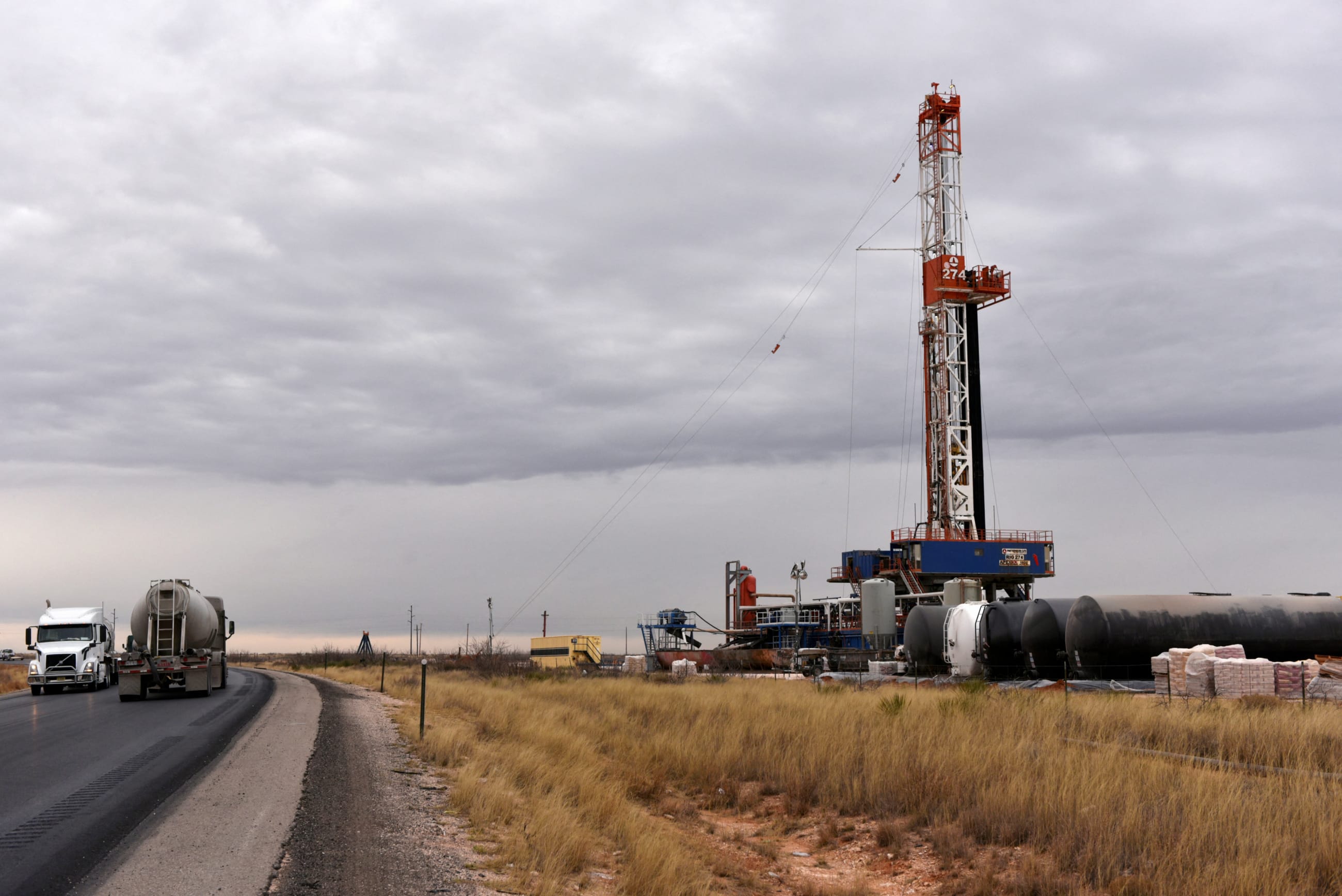
The harms to health from fossil fuels are well documented, and many studies have proved a strong causality between negative health outcomes and local pollution from fossil fuels. In 2021, nine Ecuadorian girls filed a constitutional injunction against the government, claiming that air pollution was violating their health, sovereignty, and other rights guaranteed by the constitution. Evidence of higher incidence of cancers in the population due to the related air pollution helped them win the case. The ICJ ruling extrapolates the outcomes of these cases beyond responding to local harms, enabling similar groups to attribute the global effects of fossil fuel production and consumption to emitting countries and companies.
Now, studies that detect and attribute health impacts to climate change—including asthma, cardiovascular diseases, and heat-related illnesses—can be used to establish standing in court (in cases where a direct health impact can be attributed).
This stronger attribution permits countries to seek reparations for climate harms. The expanded remit includes claims to be compensated for direct loss and damage, an area often discussed in international climate negotiations. Those losses and damages now extend to any affliction resulting from climate change, such as harms to health and well-being.
The ICJ clarifies that actions should not be delayed in the face of scientific uncertainty, such as the precise pathways through which rising emissions will harm a specific population. This guidance would apply to health outcomes that are scientifically known to be influenced by climate-related hazards but may not always be backed by the local evidence for a particular case often required to demonstrate legal standing.
Using Scientific Evidence in Court
Proving the link between climate change and a particular health impact has remained a major challenge in climate litigation [PDF], but science is quickly catching up.
In July, a group of eminent health experts published a framework for detecting and attributing health impacts to climate change; meanwhile, climate experts and the medical community are collaborating to identify the links between climate impacts and health outcomes [PDF] by integrating them into existing medical practices such as the International Classification of Diseases. Public health specialists are also increasingly engaging [PDF] as expert witnesses in climate cases.
Stronger transdisciplinary collaborations between climate scientists and health experts could supercharge attribution studies and climate court cases in the coming years. In particular, climate cases in low- or middle-income countries remain rare, representing less than 10% of the total cases documented. Although the low representation could be an outcome of multiple factors, health attribution research centered around the most affected communities and population groups could help address that gap.
Prioritizing Intergenerational Justice
Last, the ICJ ruling could propel intergenerational justice and the need for governments and companies to evolve from short-term, reactionary decision-making toward long-term environmental stewardship. Intergenerational equity, as recognized by the court, is the concept that present generations are trustees of humanity tasked with preserving dignified living conditions and transmitting them to future generations.
Given the disproportionate impacts of climate change on children and youth, the ruling concluded that countries must apply an intergenerational equity lens to their climate commitments, explicitly recognizing that "the environment is not an abstraction but represents the living space, the quality of life and the very health of human beings, including generations unborn." Health arguments will provide powerful backing to youth and other citizen groups advocating on behalf of those most affected.
A 2022 analysis of climate court cases found that the youth were the most common group to file cases built on public health arguments. For instance in 2020, a group of children age 2 to 18 filed a case against the U.S. state of Montana, claiming that the state's energy policy was violating their constitutional provision to a clean and healthy environment "for present and future generations." The Montana Supreme Court found the cited physical and mental burdens caused by climate change to be recognizable injuries and requested the state develop a remedial plan. In the 2022 case of Indonesian Youths and others v. Indonesia, youth plaintiffs claimed that the government's insufficient action on climate change violated their constitutional rights, including their right to life and the right to a healthy environment.
In current legal and political systems, children and youth often lack meaningful representation in elected bodies or political power. The ICJ ruling provides young people with another tool to secure their rights and a liveable planet for future generations.
